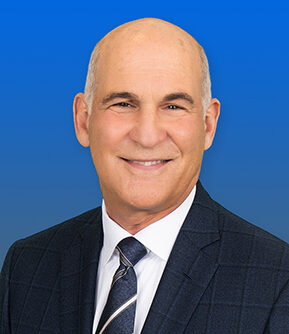Handling Potential Exposure to Ebola in the Workplace
Ebola Virus Facts
Currently, we are being inundated with news reports regarding the epidemic in West Africa and returning health care workers in the U.S. who have been infected with Ebola. The media coverage and the threat of Ebola’s spread in the United States have caused many employers to be concerned about protecting their employees and limiting any potential exposure while understanding the legal restrictions imposed on them.
Ebola Virus Facts
Ebola is a rare and deadly disease caused by infection with one of the Ebola virus strains. Symptoms of Ebola include fever greater than 101.5° F, severe headache, weakness, muscle pain, diarrhea, vomiting, abdominal pain and unexplained bruising or bleeding. Symptoms may appear between two and 21 days after exposure, but the average is eight to 10 days. A person is only contagious after symptoms begin. The virus is not an airborne virus such as the flu or SARS, nor can it be transmitted by water or food. To contract the virus, a person must come in contact with bodily fluids (vomit, diarrhea, mucus, blood, sweat, feces, breast milk, semen, saliva, tears and urine) and then touch his/her eyes, mouth or broken skin. The virus can survive on dry surfaces such as countertops and door knobs for several hours and can be killed with household bleach. For more detailed information, visit the Centers for Disease Control and Prevention (“CDC”) website.
Employer Concerns
Employees in the U.S. are at low risk of encountering the Ebola virus or individuals infected with the virus. The Occupational Safety & Health Administration (“OSHA”) has identified specific industries in which employees are at a greater risk for infection:
| Health care workers | Airline and other travel industry personnel | |
|---|---|---|
| Mortuary and death care workers | Laboratory workers | |
| Border, customs and quarantine workers | Emergency responders | |
| Workers in critical infrastructure/key resource sectors |
Employers in these industries must ensure their infectious disease protocols are up to date and provided to all workers. OSHA has published extensive guidelines addressing how to clean surfaces that may be contaminated and the protection of workers during a pandemic. The guidelines also identify and direct employers to the CDC recommendations for each high-risk industry. OSHA requires that employers provide a safe workplace free from hazards that may cause serious physical harm or death to employees, which includes possible Ebola exposure.
As a result, for business-related travel to the currently affected areas in West Africa, employers may want to delay such business travel or at minimum ensure that their employees are educated and fully informed on the methods of transmission, prevention and symptoms of Ebola, as well as explain the safety precautions to take upon return. For example, ExxonMobil announced that it has delayed the planned late-2014 start of its first exploration well off the coast of Liberia and has restricted “non-essential” business trips to West African areas hit hard by the virus.
Of course, employers cannot control what employees do with their own vacation and personal time. For example, an employee may take FMLA leave to travel to Liberia to take care of a sick parent with Ebola. The employer may not interfere with the employee’s right to take such leave. Upon the employee’s return to the U.S., the employer must evaluate the severity of the risk for the employee to return to work. If there is sufficient risk of exposure, the employer needs to determine what precautions, if any, should be taken, including requiring the employee to work from home or requiring a medical clearance to return to work.
Limitations on Restrictions
In response to the 2009 H1N1 flu pandemic, the EEOC issued guidelines for how employers should handle pandemics without interfering with an employee’s rights under the Americans with Disabilities Act. The EEOC advises that employers can ask employees about their travel, including personal travel, since such questions are not considered to be disability-related. These questions are also reasonable, given the CDC’s recommendations that U.S. residents currently avoid non-essential travel to identified West African countries and that anyone traveling to these countries are to monitor their health for 21 days following their return.
While it is not recommended that employers compel an asymptomatic employee returning from West Africa to undergo a medical examination, employers may ask employees of their travel and potential exposure, as well as require a medical examination of any employee who is showing symptoms and/or who had contact with the virus given the significant risk of substantial harm to other employees. Employers may also ask at-risk employees to voluntarily monitor their temperatures and take steps to ensure they are not infected, but employers may not require this for everyone who has recently traveled to Africa. Imposing broad restrictions on all employees from West African countries runs the risk of Title VII claims of national origin and/or race discrimination, especially where employees have no reasonably suspected exposure to the virus.
If an employee has traveled to an affected area or may have been exposed to the virus, it is best to follow the CDC’s guidance on how to monitor for symptoms. An employer may decide to pay an employee to stay home during the 21-day period in which the symptoms may appear after the initial exposure. Conversely, employers that believe the risk of Ebola exposure is non-existent or too limited to justify any precautionary actions may run the risk of substantial damages if another employee contracts the virus after exposure to an at-risk employee.
Refusal to Work With an Employee Who May Have Been Exposed
Another area of concern is employees who refuse to work with an individual who has traveled to affected areas and/or may have been exposed to the virus. Employees may threaten to refuse to work with that particular individual and/or not come to work if the individual returns. Employers cannot terminate these employees if they reasonably believe there is imminent danger or harm to themselves may occur under OSHA’s anti-retaliation guidelines, as well as under the protections for concerted activity under Section 7 of the National Labor Relations Act even for non-union employees. Section 502 for the Labor Management Relations Act also provides that it is lawful for employees to cease working when they have a good faith belief of abnormally dangerous conditions.
Key Points
- All business travel to countries currently on the CDC’s warning list, including Liberia, Guinea, Sierra Leone and the Democratic Republic of the Congo, should be delayed and/or discontinued, if possible. If not possible to delay/discontinue such business travel, educate employees on Ebola transmission, symptoms and necessary precautions to limit exposure. Employers should also have contingent emergency plans if the employee requires an emergency evacuation for health-related reasons.
- Any employees who have traveled to the affected areas should notify the HR department upon their return home. The HR department should identify whether the employee had any potential exposure. The employee’s responses will determine the nature and extent of actions an employer may take and whether the employee should be permitted to return to work or remain at home for a period of time, as recommended by the CDC, until it is clear that they do not have symptoms.
- Employers may require employees to utilize infection-control practices at work such as using appropriate protective equipment and immediately cleaning and disinfecting any visible surface contamination from blood, urine, feces, vomit or other bodily fluids. If Ebola contamination is at all suspected, the employer should use only specially trained and equipped personnel and/or hire an outside service specializing in such clean-ups.
- Discuss with counsel any disciplinary actions to be taken against any employees who refuse to work with an employee whom they believe may have been exposed to the virus.
For More Information
If you have any questions regarding this Client Alert, please contact Kenneth D. Kleinman at 215.751.1946, Theresa M. Zechman at 717.399.6644, or the Stevens & Lee attorney with whom you normally consult for labor and employment matters.
This News Alert has been prepared for informational purposes only and should not be construed as, and does not constitute, legal advice on any specific matter. For more information, please see the disclaimer.


